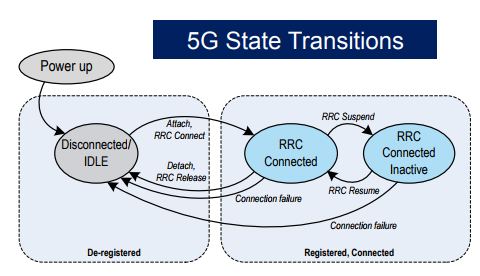5G Cybersecurity Bootcamp Based on 3GPP Standards
telcomatraining.com – As communication technology continues to evolve, the arrival of 5G networks has brought significant changes across various industries, including cybersecurity. However, with the high-speed and low-latency capabilities of 5G, the potential security risks also increase. To address these challenges, many institutions and organizations are now offering 5G Cybersecurity Bootcamps based on 3GPP (3rd Generation Partnership Project) standards.
What is 5G Cybersecurity?
5G cybersecurity refers to the practices, protocols, and tools aimed at protecting the 5G network infrastructure and the data transmitted over it. With the massive growth of connected devices and critical applications relying on 5G technology, ensuring the network’s security has never been more important. 5G brings numerous benefits, such as ultra-fast internet speeds, low latency, and the ability to support the Internet of Things (IoT) on an unprecedented scale, but it also introduces new vulnerabilities that need to be addressed.
Why 3GPP Standards Matter in 5G Cybersecurity
The 3GPP is an international body that develops globally recognized standards for mobile telecommunications. It plays a crucial role in defining the technical specifications for 5G networks, ensuring that they are interoperable, secure, and reliable. In the realm of cybersecurity, the 3GPP sets out protocols and guidelines to safeguard against potential threats in 5G networks, such as data breaches, denial of service attacks, and unauthorized access.
By adhering to these 3GPP standards, telecom operators, cybersecurity professionals, and organizations can mitigate risks and ensure that their 5G networks are robust and resilient against cyberattacks. These standards address everything from encryption methods to authentication processes and emergency response systems, providing a comprehensive security framework for 5G infrastructure.
Key Topics in 5G Cybersecurity Bootcamps
A 5G Cybersecurity Bootcamp offers an intensive training program to equip participants with the knowledge and skills needed to defend 5G networks against emerging threats. These bootcamps are designed to provide hands-on, practical training, often based on real-world scenarios and the latest industry standards, including those outlined by the 3GPP.
1. Understanding 5G Network Architecture
- The first step in 5G cybersecurity training is understanding the network’s architecture, including its components such as the RAN (Radio Access Network), Core Network, and Edge Computing. Each of these elements introduces its own set of vulnerabilities, which need to be addressed through effective cybersecurity practices.
2. Threats to 5G Networks
- A significant part of the bootcamp focuses on identifying and mitigating potential security threats in 5G networks. This includes threats like man-in-the-middle attacks, signaling storms, eavesdropping, and more sophisticated threats targeting the IoT devices connected to 5G networks.
3. 3GPP Standards for Authentication and Encryption
- Bootcamp participants will gain in-depth knowledge of the 3GPP standards for user authentication and encryption. The 3GPP has laid out specific guidelines to ensure that users and devices are securely authenticated before accessing the network, and data is encrypted to prevent interception.
4. Network Slicing and Security
- One of the defining features of 5G is network slicing, which allows the creation of isolated virtual networks tailored to specific use cases. Security measures must be taken to ensure that each slice is protected from both external and internal threats, making this an important focus in 5G cybersecurity bootcamps.
5. Incident Response and Mitigation
- An essential component of any cybersecurity training is preparing for potential incidents. In a 5G context, this means being able to quickly detect, respond to, and mitigate security incidents. Bootcamp training often includes developing incident response strategies, based on 3GPP guidelines, to effectively handle cybersecurity breaches.
Benefits of Attending a 5G Cybersecurity Bootcamp
Attending a 5G Cybersecurity Bootcamp offers several key benefits for both individuals and organizations:
- Hands-On Experience: Participants gain real-world experience in securing 5G networks using tools and techniques aligned with 3GPP standards.
- Increased Job Market Competitiveness: With the demand for cybersecurity professionals growing rapidly, certification in 5G cybersecurity can significantly enhance career prospects.
- Network Protection: Organizations can better protect their 5G networks and ensure compliance with international cybersecurity standards, reducing the risk of cyber threats.
Conclusion
As 5G networks continue to expand, ensuring their security becomes increasingly vital. With the complexities and challenges that come with 5G technology, 5G Cybersecurity Bootcamps based on 3GPP standards provide invaluable training to cybersecurity professionals. By mastering the latest security protocols and practices outlined by 3GPP, individuals can effectively protect 5G infrastructures from evolving cyber threats, ensuring that these networks remain secure and reliable for years to come.






